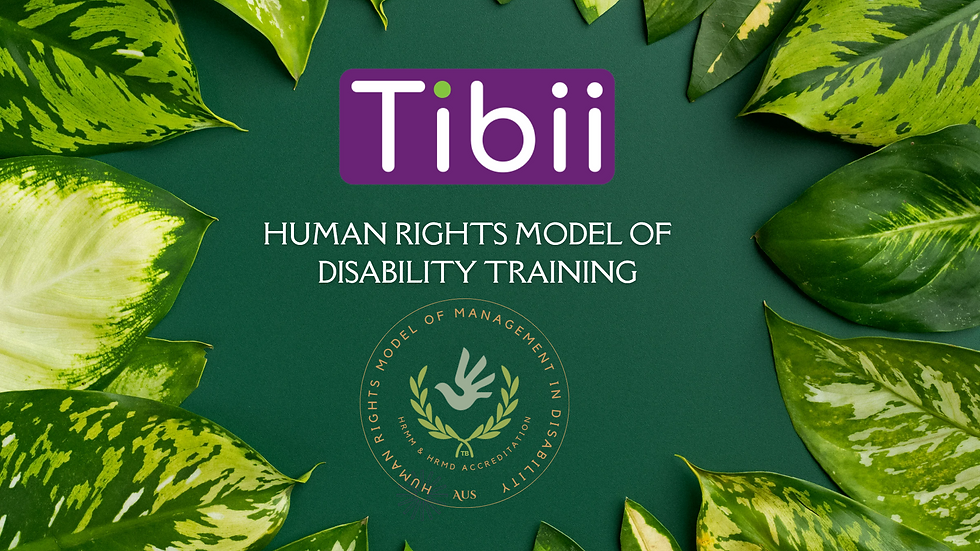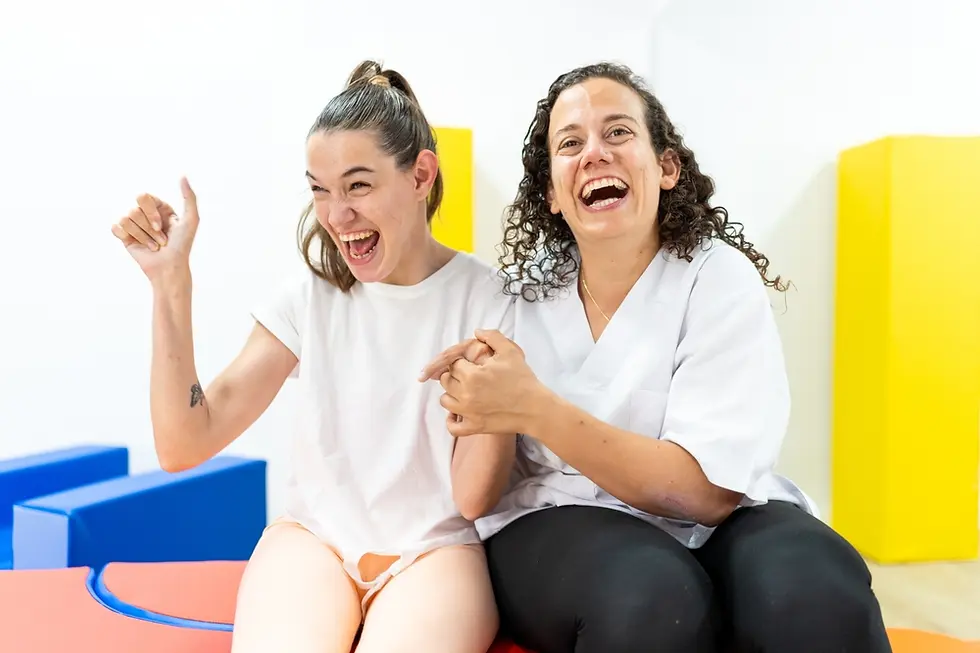Breaking Barriers, Building Confidence: The Power of Adaptive Sports for People with Disabilities
- Tibii Team

- Feb 3, 2023
- 4 min read
Updated: Jun 30, 2025
People with disabilities often face significant barriers to participating in sports and recreational activities, despite the numerous benefits that such activities can provide. From a lack of accessible facilities to negative attitudes and assumptions about disability, individuals with disabilities are often excluded from opportunities to lead active and healthy lives.

However, the benefits of sports and recreational activities for people with disabilities are numerous. Physical activity can help to improve overall health and well-being, reduce stress and anxiety, and increase self-esteem and confidence. It can also provide socialisation opportunities and help break down barriers and promote inclusion.
Adaptive sports and recreational activities are designed specifically for individuals with disabilities, taking into account their unique needs and abilities. These activities can range from adaptive versions of traditional sports, such as wheelchair basketball or seated volleyball, to more specialized activities, such as goalball (a sport specifically designed for individuals with visual impairments).
The following 7 activities are well-designed for people with disabilities:
Wheelchair Basketball: A fast-paced, competitive sport that is played in wheelchairs, allowing people with a variety of disabilities to participate.
Para-Swimming: An adaptive sport that offers individuals with disabilities the chance to enjoy the water and engage in competitive swimming events.
Adaptive Sailing: A recreational activity that allows individuals with disabilities to experience the thrill of sailing, either solo or as part of a crew.
Adaptive Rock Climbing: A challenging and exciting activity that allows people with disabilities to scale new heights and build their strength and confidence.
Wheelchair Tennis: A fast-paced, competitive sport that can be played by individuals with a wide range of disabilities, from spinal cord injuries to amputations.
Adaptive Yoga: A gentle, yet empowering form of exercise that can help individuals with disabilities to build strength, flexibility, and balance, as well as reduce stress and anxiety.
Disability Archery: A fun and challenging sport that can be enjoyed by people with a wide range of disabilities, from spinal cord injuries to visual impairments. Whether practising alone or competing in tournaments, disability archery offers a great opportunity to develop physical skills and build confidence.
Adaptive sports and recreational activities can be found at community centres, parks and recreation departments, and specialized organizations and clubs. Many adaptive sports organizations also provide equipment and support to make these activities accessible to everyone.
In-Home and Community Support for People with Disabilities
In addition to sports and recreational activities, individuals with disabilities may also need support in other areas of their lives, such as personal care, transportation, and equipment. This support can help individuals with disabilities live independently and fully participate in their communities.
In-home support can range from personal care services, such as bathing and dressing, to more specialized support, such as support for individuals with complex medical needs. This type of support is often provided by home care agencies or personal care workers and can be tailored to meet the individual's specific needs and preferences.
Community support can include services such as transportation, which can help individuals with disabilities to access essential appointments and activities, as well as equipment and assistive technology, which can make daily tasks easier and more accessible.
Tibii's In-Home Support for People with Disabilities
At Tibii, we understand the importance of in-home support for individuals with disabilities. Our in-home support services are designed to help individuals with disabilities to live as independently and fulfilling lives as possible.
Our in-home support services are built around our Human Rights Model of Disability, which puts the individual at the centre of everything we do. This means that we work closely with each individual to understand their specific needs and develop a tailored support plan that meets their goals and aspirations.
Our in-home support services are also designed with accessibility and inclusion in mind. We work hard to remove any barriers that individuals with disabilities may face, whether they be physical, informational, or attitudinal. This can range from providing equipment and assistive technology, to training on the use of technology and other tools that can make daily tasks easier.
Finally, Tibii's in-home support services are built on a foundation of respect and dignity. We believe that every person with a disability deserves to be treated with the same respect and dignity as anyone else and that their rights should be upheld and protected. Our in-home support services are designed to promote a culture of inclusion and respect and to challenge negative attitudes and assumptions about disability.
In conclusion, adaptive sports and recreational activities, and in-home and community support, are essential components of a fulfilling and inclusive life for individuals with disabilities.
We can help individuals with disabilities to participate in adaptive sports and recreational activities in several ways:
Equipment Support: Tibii can provide individuals with the necessary equipment to participate in their chosen activities, whether that's a wheelchair, prosthetics, or assistive technology.
Transportation: Tibii can provide transportation to and from the activity, making it easier and more accessible for individuals with disabilities to participate.
Personal Support: Tibii can provide personal support, including assistance with dressing, transferring, and participating in the activity.
Expertise: Tibii has a team of experienced and qualified professionals who are trained in supporting individuals with disabilities, and can provide expert advice and guidance on the best adaptive sports and recreational activities for each individual.
Community Connections: Tibii can connect individuals with disabilities to local adaptive sports and recreational activities, providing opportunities for them to meet others with similar interests and build new social connections.
Adaptive Coaching: Tibii can provide adaptive coaching and training, helping individuals with disabilities to develop their skills, build their confidence, and reach their full potential.
By providing these supports and services, Tibii is working to make adaptive sports and recreational activities accessible and inclusive for individuals with disabilities, and to support them in leading fulfilling and active lives.
Tibii's Human Right Model of Disability is a truly innovative approach to disability support, designed to put the individual at the centre of everything we do. Our focus on accessibility, respect, and dignity means that we are working to make a positive difference in the lives of people with disabilities and to promote independence, inclusion, and fulfilment for all. Whether through in-home support, adaptive sports and recreational activities, or community support services, Tibii is dedicated to working towards a brighter and more inclusive future for people with disabilities.
For more information about our In-Home and Community Support Services or if may have any questions regarding NDIS policies; please contact us:




the article is useful